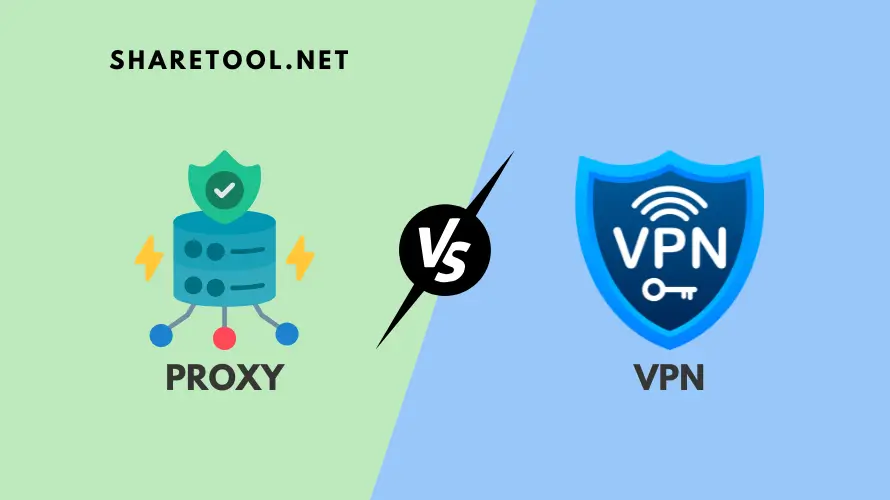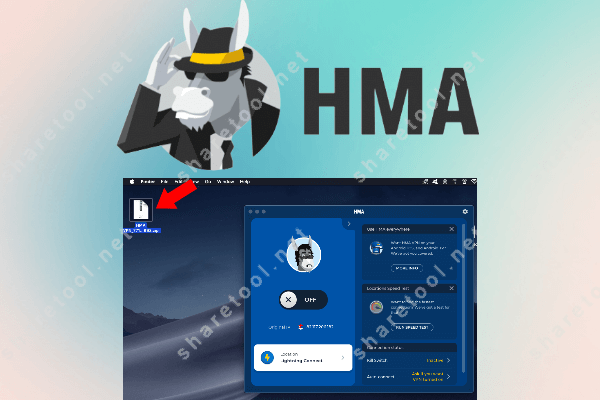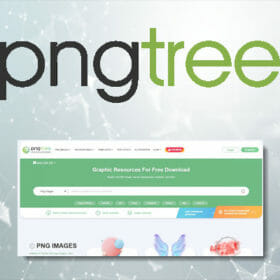VPN vs Proxy: Which Offers Better Online Security And Privacy?
This comprehensive comparison post VPN vs Proxy covers everything needed to answer the question ”What is the difference between a Proxy and a VPN?”
Both VPNs and proxy servers are excellent resources for safely viewing material while also protecting user identities. People frequently use these two services interchangeably because they can both accomplish the task at hand. One does, however, safeguard your privacy, while the other does not.
What is VPN and Proxy?
Both a VPN and a Proxy conceal your IP address by rerouting your internet traffic via a distant server. However, a VPN encrypts and secures all of your internet connections, providing complete anonymity, whereas a proxy is only capable of protecting traffic for a single app or service.

Like a proxy, a VPN substitutes the server’s IP address for yours when you connect. The VPN’s capacity to transport your data via an encrypted tunnel, guaranteeing the privacy and security of your online activities, is the primary distinction.
Proxies lack the sophisticated security measures and strong privacy safeguards that a VPN offers, despite being helpful for simple tasks like browsing.
What is a Proxy server and what does it do?
An program or specialized system that serves as a bridge between your device and the internet is called a proxy server. Your web requests are passed through a proxy server before they reach the intended website or service when you utilize one. This procedure provides some privacy by masking your actual IP address and substituting it with the IP of the proxy server.
Proxy servers are often used to get around geographic limitations, filter content, manage user behavior, or use caching to speed up surfing. They are less secure than VPNs for safeguarding sensitive data, though, as they simply control traffic for particular apps or browsers and your data is still susceptible to interception due to their lack of encryption.
Your internet requests are intercepted by a proxy server, which then forwards them to the intended server on your behalf. Your device makes a request to the proxy server to access a website or service when you connect to it. After processing this request, the proxy masks your IP address and replaces it with its own before forwarding it to the intended recipient.
The proxy retrieves the data and sends it back to your device as soon as the target server responds. This feature enables the proxy to cache information to expedite recurring requests and to regulate, filter, or log traffic.
Proxy servers conceal your IP address, but they don’t encrypt data, so unless you use them in conjunction with other security measures, your activity is susceptible to interception.
What is a VPN and what does it do?
Through the creation of an encrypted tunnel between your device and a distant server, a virtual private network, or VPN, service protects your internet connection.
Your location and online identity are made anonymous when you use a VPN since your traffic is routed through this server, which hides your actual IP address and gives you the server’s IP. All data sent between your device and the internet is shielded from hackers, ISPs, and third-party surveillance thanks to the encryption.
In addition to improving privacy, this technology makes it possible to securely use public Wi-Fi networks, get around geo-restrictions, and access content that is restricted. A VPN offers complete protection and privacy for your online activities by encrypting all internet traffic throughout your computer, in contrast to proxies, which only work on one application.
Your internet data is routed over an encrypted tunnel to a distant server run by the VPN provider in order for a virtual private network, or VPN, to function. When you connect to a VPN, encryption protocols are used to first create a secure connection between your device and the VPN server. Your data is shielded from hackers and eavesdroppers by this encryption.
The VPN server serves as a go-between for your device and the websites or services you access after the connection is made. Your location and identity are rendered anonymous by hiding your actual IP address and substituting it with the VPN server’s IP address.
Encrypting and securely routing all of your internet traffic including conversation and browsing through the server keeps your data private and guards against illegal access from hackers or ISPs.
What is the difference between a Proxy and a VPN?
Functionality, security, and the degree to which they safeguard your online behavior are the main distinctions between a Proxy and a VPN. Here are some highlights that Share Tool has analyzed to answer the question “What is the difference between a Proxy and a VPN?”:
Usability:
- Only some applications (such as a browser or a specific app) can use a proxy to transport traffic. By hiding your IP address for the particular service or application you’re using, it serves as a bridge between your device and the internet.
- A VPN, on the other hand, provides complete protection for all internet activities by encrypting and securing all of your internet traffic across the device, including apps, websites, and even system-level connections.
Safety:
- Since a proxy lacks encryption, your data is not safe while it moves from your device to its final location. It’s mostly used for things like masking your IP address while browsing or getting around geo-restrictions.
- Even while using public Wi-Fi, a VPN protects your data by encrypting all of your internet activity. Because of this, VPNs are far more safe and efficient at safeguarding private data.
Personal space:
- A proxy does not provide complete privacy protection for all of your online activities, even while it conceals your IP address for particular apps or websites. Additionally, it doesn’t secure your data, so hackers, ISPs, or governmental organizations may be able to access your surfing activity.
- By hiding your IP address and encrypting all of your traffic, a VPN guarantees complete privacy and security. Compared to a proxy, it provides more privacy and stops tracking.
Performance:
- Since a proxy does not require data encryption, it may be faster than a VPN. But there is a price for this: less security.
- Because of the encryption process, a VPN may cause a minor slowdown in your connection, but it provides considerably greater protection and privacy for your online activities.
| Aspect | Proxy | VPN |
|---|---|---|
| Usability |
|
|
| Safety |
|
|
| Personal Privacy |
|
|
| Performance |
|
|
| Privacy & Security |
|
|
| Velocity |
|
|
In conclusion, a VPN is more thorough and safe, making it the best choice for anyone looking for increased privacy and protection when using the internet, whilst a proxy is quicker and easier, making it best suited for simple activities like getting around limits.
Which is better Proxy or VPN?
Your particular demands will determine whether you should use a VPN or a proxy, but generally speaking, a VPN is the superior choice because of its extensive security and privacy capabilities.
Privacy and Security:
- In terms of security, VPN is far better. It protects the privacy and security of your data by encrypting all of your internet traffic, particularly when you use public Wi-Fi. Additionally, it conceals your true IP address and shields your identity and online activities from outsiders like hackers, internet service providers, and government monitoring.
- In contrast, a proxy does not encrypt your data; it merely conceals your IP address for particular applications. This implies that it provides less protection and privacy, making your online activities vulnerable to interception.
Usability:
- VPNs are more adaptable since they offer complete protection by encrypting and securing all of your internet traffic across all of your device’s apps and services.
- Proxies are helpful in certain situations, such as getting around censorship for particular apps or accessing geoblocked content, but they are unencrypted and only function for a single app or service at a time.
Velocity:
- Since proxies do not encrypt data, they are typically faster than VPNs. A proxy might be adequate if speed is your primary concern, particularly for tasks that don’t require great security.
- Due to encryption, VPNs may result in a little decrease in speed. But typically, the advantages of privacy and security outweigh the slight performance penalty.
| Factor | Best Option | Why? |
|---|---|---|
| Privacy & Security |
VPN |
|
| Usability |
VPN |
|
| Performance (Speed) |
Proxy |
|
So, which is better Proxy or VPN?
In general, a VPN is the superior choice for overall security, privacy, and adaptability. It safeguards all of your internet activity and offers stronger encryption. A proxy may be sufficient for certain tasks if your only goal is getting around regional content limitations with little regard for privacy, but it doesn’t provide the same level of protection.
What is the best VPN service?
HMA VPN
A well-known virtual private network service called HMA VPN (HideMyAss VPN) was created to give consumers better online protection and privacy. By passing your traffic through a distant server, it enables you to encrypt your internet connection and conceal your true IP address. This procedure protects you from hackers, trackers, and even your internet service provider by guaranteeing that your online behavior stays anonymous and private.
One of HMA VPN’s many important advantages is its extensive global server network, which enables you to get around censorship and view content that is blocked by geography. It is compatible with Windows, macOS, Android, and iOS, and it offers robust encryption protocols to protect private information, particularly while using public Wi-Fi networks.

In order to minimize any unintentional data exposure, HMA VPN additionally has a kill switch option that cuts off your internet connection in the case that the VPN service is unavailable.
HMA VPN Pricing:
HMA VPN (HideMyAss VPN) Pricing offers several pricing plans based on different subscription durations. As of now, these are the typical pricing options:

All things considered, HMA VPN is the best option for anyone looking for an easy-to-use, dependable VPN to protect their privacy, browse safely, and access content from other countries while they’re online.
NordVPN
A well-known Virtual Private Network (VPN) provider, NordVPN is renowned for offering strong online security, privacy, and anonymity. By encrypting your internet connection, it effectively hides your IP address and directs traffic through one of its globally distributed, safe servers. This procedure assists shield your info from online dangers like identity thieves and hackers, particularly when utilizing public Wi-Fi networks.

NordVPN’s salient characteristics include:
- Robust encryption: It employs AES-256 encryption in conjunction with cutting-edge security measures to guarantee the safety of your sensitive data and online activities.
- Huge server network: With more than 5,000 servers spread across several nations, NordVPN enables users to access websites and material from around the world without being restricted by local boundaries.
- No-logs policy: The service does not track or store your online actions because it operates under a rigorous no-logs policy.
- Specialized servers: P2P servers for file sharing, Double VPN servers for an additional degree of security, and Onion over VPN for Tor network integration are some of the extra capabilities that NordVPN provides.
- Cross-platform compatibility: It works with a number of devices, including routers, browsers, and operating systems like Windows, macOS, Android, iOS, and Linux.
- High-speed performance: Even while connecting to distant servers, NordVPN is renowned for sustaining dependable and quick connection connections.
NordVPN Pricing
NordVPN Pricing offers several plans to cater to different needs and budgets. As of now, these are the typical pricing options:

For customers who value privacy, wish to secure their internet traffic, and require access to geo-restricted content or international streaming services, NordVPN is the best option.
Conclusion: VPN vs Proxy
In conclusion, Proxy and VPN both hide your IP address and provide a certain level of privacy online, but they differ greatly in terms of the security and protection they provide. Therefore, it is difficult to answer the question of which is better Proxy or VPN because it depends on the user and the purpose they are aiming for.
For individuals who want complete online protection, encryption and anonymity for all their internet activities, VPN is clearly the better choice. It is perfect for those who care about their privacy as it encrypts all your data and secures every connection.
Proxy does poorly in terms of security and privacy, although it can be useful for bypassing geo-restrictions and masking your IP address for specific tasks. Ultimately, VPN is the more reliable choice for strong security and a safe online experience.
- Top 10 Best Social Media Analytics Tools For Digital Marketers
- Kittl Review – Best AI Design Tool For Social Media Graphic
- SaleSource Review – Best Analytics Tools & Resources to Grow Your Ecommerce
- 10+ Best Grammar Checker Tools For Authors To Refine Manuscripts And Stories
- Schema Pro Review – Simplifying Schema Markup For WordPress Users









